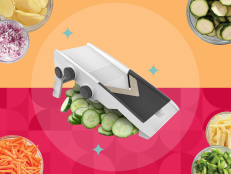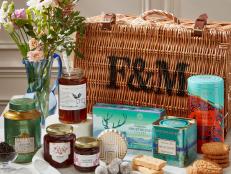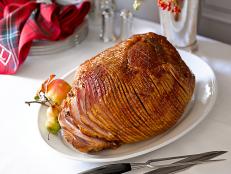8 Eco-Friendly and Sustainable Cookware Brands to Know
This Earth Day, invest in brands that are safe for the environment and for your kitchen.
Sustainability is a hot topic, and for good reason. Broadly, it's about building things — businesses, products, lifestyles, systems and more — in a way that protects the environment and ecosystem and doesn't deplete natural resources for future generations, while also supporting human health and overall wellbeing in the present. But more concretely, it can be tough to decipher what exactly makes something sustainable (or not).
When it comes to cookware, there are so many options out there that it can be dizzying. As regulations have changed over the years, and so has our interest in cleaner products, many brands, both new and stalwart companies, have taken an interest in making their products both safer for the environment and for the consumer.
This includes removing those "forever chemicals" that have been found in nonstick pans like PFAS, PTFE and other toxins. It also means using materials that don't contain lead, cadmium or other heavy metals, and instead finding other materials that cook food beautifully without the concern.
If you want a truly sustainable brand, you'll also want to pay attention to their business practices, charitable giving, supply chain and labor practices, too, to make sure they are truly practicing what they preach.
6 Best Nontoxic Cookware Lines of 2025, Tested and Reviewed
These health-conscious cookware picks don't skimp on performance.
Sustainable and Eco-Friendly Cookware Brands
Made In
Made In offers cookware in a variety of sustainable materials, including ceramic, stainless steel and carbon steel, but their commitment to being eco-friendly doesn't stop there. They use sustainable packing for their shipments and created an option to hold packages from multiple orders to be shipped together to reduce their carbon footprint. They offer a recycling program for customers to send back their old cookware, which they melt down to create new pots and pans, or donate to Habitat for Humanity to make sure they have adequate cookware for their projects.
Our Honest Review of Made In's Stainless Clad Cookware
The new kid on the block, Made In Cookware, is a heavy hitter in the world of stainless steel pans.
Caraway
Caraway's beautifully hued, nonstick, ceramic-coated cookware takes the chemicals out of traditional nonstick, making it better for the environment not only when cooking but also when produced, as it emits less CO2 into the environment. The company also looks to ethical manufacturing, making sure workers are paid fairly, safe and given benefits. The packaging is even sustainable with no plastic bags, recycled cardboard and low-ink print dyes.
We've Used Caraway Pans for Years, and Still Love Them
After more than three years of testing, we still swear by Caraway's nontoxic cookware line.
GreenPan
When GreenPan decided to create PFAS-free cookware, they also decided to take the steps to make all aspects of their business sustainable, from a factory that runs on solar power and is completely forever chemical-free to having a wastewater treatment center so they can manage their own waste. They also offer a recycling program and plant a tree for every GreenPan ordered.
I'm an Expert Product Tester, and This Is My Favorite Nonstick (and Nontoxic!) Cookware Set
GreenPan's Valencia Pro cookware line is a top option for nonstick ceramic cookware that performs well under all conditions.
Our Place
Not only does Our Place's famous Always Pan take the place of a multitude of separate cookware items, making it more sustainable, but the materials they use are also better for the earth. Whether it's the nontoxic ceramic-coated cookware, cast iron or the newest titanium line, all of the materials are eco-friendly. The biodegradable and fully recyclable packaging is designed so that there's no need for a separate shipper box or any single-use plastics.
Our Honest Review of Our Place's Titanium Always Pan Pro
Our Place's newest pan is a durable, must-have addition to your kitchen.
Great Jones
Women-run, New York-based small business, Great Jones, believes that "nontoxic materials shouldn't be the exception; they should be the new standard." Their cookware products are nontoxic and free of PTFE and PFOA. Even before launching their products, each piece was put through extensive testing by a third-party lab to ensure they passed industry standard lead tests and were free of cadmium.
5 Best Casserole Dishes of 2025, Tested and Reviewed
These dishes can make more than, well, casseroles. Find out why we love these baking dishes and think they deserve a spot in your kitchen.
Xtrema
Xtrema's 100 percent ceramic cookware (not ceramic coated like others) is compliant with the strictest of certifications, including California's Prop 65, and they are fully transparent in their manufacturing processes. They're committed to employing those who have fallen on hard times at their fulfillment center so they can feed their families in a nourishing way.
Exclusively for Food Network readers, save an extra 15 percent on your purchase by using code "FOOD" at checkout.
We Tried Xtrema's Nontoxic Ceramic Cookware — and Here's Our Honest Review
We put Xtrema's pure ceramic, all-natural cookware to the test to see if it delivers the same results as your trusty steel skillets and saucepans.
De Buyer
This French company takes their commitment to sustainability and corporate social responsibility very seriously. Not only do they focus on using eco-friendly recycled materials like carbon steel and stainless steel that last generations, but they also make it a priority to give back to their surrounding environment. This includes placing five beehives nearby to promote ecological health and increase pollination, planting trees and encouraging reforestation, and having their own wastewater treatment plant so nothing impacts the surrounding water.
4 Best Carbon Steel Pans of 2025, Tested and Reviewed
These durable, lightweight pans are beloved by chefs and we fried eggs, seared steaks and baked cornbread to find the best.
Lodge Cast Iron
Lodge has been a part of the South Pittsburg, Tennessee community since 1896, so giving back to the community is a top company priority. Volunteer opportunities abound; they have an array of teams that focus on different priorities, whether it be fighting hunger, helping the elderly or supporting youth in the community. In the factory, they are committed to energy reduction and a zero hazardous waste factory.
5 Best Cast-Iron Skillets of 2025, Tested and Reviewed
We baked, seared, fried and seasoned cast-iron pans to find the perfect pan for you!
What to Look for in a Sustainable Cookware Brand
Opt for natural and recycled (or recyclable) materials.
A basic tenet of sustainability is using materials that can be recycled or are biodegradable, both of which cut back on landfill waste. There are lots of cookware options made from sustainable materials, including cast-iron, stainless steel, aluminum, copper and ceramic. On the other hand, Teflon-coated pans are made with fluorinated plastic, which isn't recyclable and can be toxic to both humans and the environment.
Take durability into account.
If something is made from a sustainable material but doesn't last long, it may not be worth the cost of the labor, material, transportation and energy that went into producing and selling it. When it comes to cookware, cast iron gets high marks from sustainability experts. "We typically recommend cast iron in our research-based cookware reviews as it can last a lifetime if properly taken care of, and doesn't require a nonstick coating that can contain toxic chemicals," says Calloway Cook, President of Illuminate Labs, a supplement company that's also a certified Benefit Corporation, or B Corp (more on that in a minute).
Of course, it can be tough to figure out how long something will last before you even buy it. Try asking around or reading credible reviews to determine how long a product will likely last with regular use.
Look for a B Corp or another third-party certification.
Unlike with food products, for which the United States Department of Agriculture (USDA) runs the Organic Certification Program, there's no official government-run certification that denotes household products as sustainable or not. That said, there are some third-party certifications that ensure a brand meets certain sustainability standards. "Reputable third-party certifications are an excellent way to choose sustainable brands because they indicate that a product has met certain environmental or social standards," says Jennifer Kaplan, Food Systems Sustainability Manager at Miyoko's Creamery and a former instructor of sustainable food systems at the Culinary Institute of America.
Although there's some skepticism among consumers about how well these sustainability standards are enforced, there's no doubt that the certifications push businesses to be more sustainable and transparent in their practices. "One of the best and easiest to find certification is Benefit Company (B Corp)," Kaplan says. "B Corps companies have committed to using business as a force for good, and to undergo a rigorous assessment of their governance, workers (which accounts for labor and equity issues), community, and environmental impacts." You can find an online directory of B Corps here. Kaplan also recommends 1% For the Planet, a certification denoting that a company contributes at least one percent of its annual sales to environmental causes.
One important note is that getting these certifications can be expensive and time-consuming, so smaller or newer brands may opt not to apply for them, even if their practices are sustainable.
Pay attention to a brand's labor practices.
Sustainability doesn't just mean reducing carbon footprint; it's also about paying workers a living wage and providing safe working conditions. Different from minimum wage, which is a government-established standard, living wage uses the cost of living in an area to determine the wage needed to cover a household's basic needs, including not just food and shelter but also things like health insurance, childcare, transportation, clothing and personal care items. Some areas have living wage certification programs that you can look for in a brand's marketing. You can also look to see whether a brand advertises its wages — brands that pay a living wage often do — and use that to guide your decision-making.
Demand transparency.
Again, sustainability is complicated, and no one is doing it perfectly. If a brand is calling itself sustainable, you as the consumer have the right to know what their practices are and why they're claiming this (instead of just trusting them outright). Kaplan points out that too often, companies engage in "greenwashing," which means they cleverly market themselves as more sustainable than they actually are, counting on the fact that consumers won't actually dig into their claims.
Certifications like B Corp provide some transparency and accountability. Some companies take it a step further by documenting, on their website and elsewhere, where they source their materials from, how their products are made and by whom, and what other environmental efforts they're engaged in.
What Type of Cookware Is Eco-Friendly?
There are quite a few cookware materials that are eco-friendly. Here are some of the more popular varieties:
Ceramic
Some brands use fully ceramic pans, while others use a ceramic coating over an eco-friendly metal. Ceramic cookware is naturally nonstick so it's a good replacement for any nonstick pans that have chemicals. The downfall is that their lifespan is often only a few years, making them less sustainable than other materials.
Cast Iron
If you take care of a cast-iron pan properly (you can't submerge it in water), it can last for decades. Cast iron is heavy but it can handle high heat very well and is often one of the more inexpensive materials.
Carbon Steel
Carbon steel pans perform a lot like cast iron pans in handling high heat while also being easy to move onto the grill or campfire. They are often lighter in weight than cast iron pans but, if properly cared for, can last a long time.
Stainless Steel
Stainless steel cookware has been around for a long time — and for good reason. It's a great pick for everyday cookware because it is versatile and easy to clean. It's generally recyclable, too.
Benefits of Using Eco-Friendly Cookware
There is a wide array of benefits to using eco-friendly cookware. The first is that eco-friendly cookware doesn't emit toxic chemicals when heat is applied. This allows you to cook knowing that nothing from the cookware is leaching or transferring into your food.
Eco-friendly cookware tends to last longer as well, with some materials lasting decades if taken care of properly. This causes less of a pile-up of old and used products in landfills. If they do need to be discarded, they are generally made of recyclable materials. Some eco-friendly cookware is already made of recycled materials and many offer recycling programs of their own.
Many eco-friendly brands often apply those same principles to their packaging and other materials and look to make sure their manufacturing practices follow suit.
Related Content
Ways to Be More Eco-Friendly in the Kitchen 9 Photos
Incorporate these tips into your routine to be kinder to the planet.
Your Burning Earth Day Questions, Answered
Read on to find out what you can do for the environment, starting in your own kitchen.
No-Waste Meal Planning Tips, According to a Chef
TikToker Alison Mountford is on a mission to help you use up what's in your kitchen.


































































































